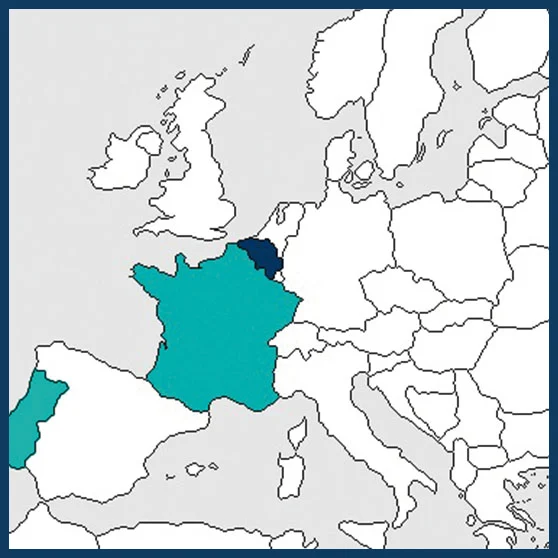02-2017 to 01-2020
€ 893,481
Prof. Dr. Olivier Honnay
olivier.honnay@kuleuven.be
KU Leuven, Heverlee, BELGIUM (Coordinator)
KU Leuven, Leuven, BELGIUM
INRA, Clermont Ferrand, FRANCE
Strasbourg University, Illkirch, FRANCE
Universidade Católica Portuguesa, Porto, PORTUGAL

As 80% of the EU population is expected to live in urban areas by 2020, the quality of the urban environment is of growing importance. Urban trees are key elements in mitigating the common environmental problems in cities, through provisioning crucial ecosystem services such as microclimate mitigation. Yet, urban trees typically face harsh environmental conditions, resulting in reduced health, and potentially jeopardising ecosystem service provisioning. Because of their well-known host tree benefits, Ectomycorrhizal Fungi (EcM) may play an important part in urban tree management through improving tree vigour, and thus the extent of the ecosystem services delivered.
URBANMYCOSERVE aims at achieving the following objectives:
• Provide an assessment of the EcM communities of urban trees, and of their environmental drivers;
• Relate the composition of EcM communities, and the presence of specific functional groups of EcM, to tree health and ecosystem services delivery;
• Develop a dedicated EcM-inoculum, specific for a set of urban tree species, to improve their health and ecosystem services delivery.
To achieve its goals, URBANMYCOSERVE project will implement the following activities:
• Characterise the EcM communities of a set of model tree species from three cities (Porto, Leuven and Strasbourg) through advanced DNA-barcoding techniques.
• Identify the environmental drivers of EcM community composition of the model tree species;
• Quantify tree health, growth and ecosystem services provided by the tree species (such as air quality improvement, decrease of water runoff and microclimate mitigation) through advanced remote sensing techniques and modelling, and identify the mediating role of EcM;
• Develop and test (in situ and ex situ) dedicated EcM-inocula for urban settings.
URBANMYCOSERVE will disseminate tailored guidelines for enhancing urban tree health through actively and passively managing EcM-communities to municipalities and urban greenery services. These stakeholders will also be actively involved in tree and site selection. Other stakeholders are companies that develop and market bio-fertilisers. These companies will be involved in the choice of the technology for inocula production and of the carrier for their formulation. These issues are key elements to their successful application.